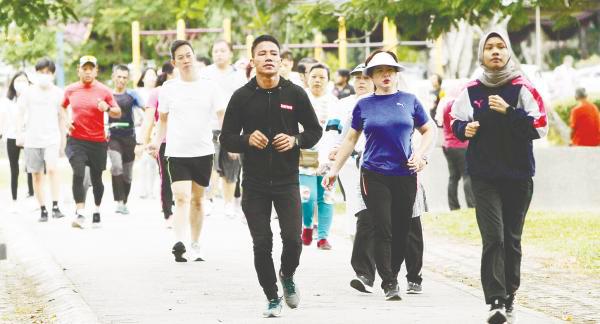IN the face of demographic transitions and escalating health challenges, Malaysia stands at a critical juncture where proactive measures are essential to confronting the implications of an ageing population and the increasing prevalence of obesity.
The recent revelations from the 2023 National Health Screening Initiative have underscored the urgent need for targeted policies to address the high rates of obesity as 31.3% of screened individuals were found to be overweight, with an additional 22.2% falling into the obese category.
Simultaneously, data from the Statistics Department paints a picture of a nation experiencing a demographic shift towards an ageing population, with the proportion of individuals aged 65 years and above rising.
The notion of healthspan, focusing on optimising the healthy years of life, has emerged as a beacon of hope in navigating the complexities of modern health challenges that will lead to a more robust economy encompassing a productive population.
As we have unravelled the keys to living longer and healthier lives, emphasis has been placed on lifestyle factors that influence longevity.
The paradigm shift towards healthy longevity emphasises the significance of holistic well-being through diet, exercise, mental health and social connections. Move more, eat less and healthier, have a purpose and be surrounded by close friends and loved ones.
With genetics accounting for a mere 20% of the determinants of longevity, the lion’s share of influence lies in lifestyle choices and environmental factors. Encouraging individuals to embrace healthier habits not only holds promise for their well-being but also carries the potential to catalyse transformative shifts in economic dynamics across diverse sectors.
Central to the discourse on healthspan is the imperative to revolutionise dietary patterns. The prevalence of processed, high-calorie foods has fuelled the surge in metabolic disorders such as diabetes, highlighting the need for a shift towards fresh, whole foods. Embracing practices such as caloric restriction and intermittent fasting is essential for improving healthspan.
The imperative for the food industry to pivot towards offering healthier alternatives and reducing the prevalence of processed foods is paramount. Initiatives such as the Social Security Organisation’s “Tolak Gula” campaign in conjunction with its long-running health screening programme are poised to reshape the nutritional landscape towards a healthier trajectory. The food industry must also adapt by reducing calorie content and processed offerings, transitioning to providing more accessible, fresher and healthier food options.
Physical activity stands as the cornerstone in fostering healthspan by bolstering cardiovascular health and musculoskeletal strength, and influencing cellular ageing processes.
The post-pandemic surge in interest in various forms of exercise signals a societal shift towards prioritising physical well-being. This trend is poised to propel heightened engagement in fitness-related services and products, presenting opportunities for industries such as gyms, sports apparel and equipment manufacturers to thrive, thus further bolstering economic activity.
The evolving healthcare landscape is witnessing a shift from reactive treatment to preventative care, with a focus on early detection and intervention to mitigate disease burdens and enhance overall population health.
The Health Ministry’s Nation Builder Healthy Community campaign serves as a great example of the adage “prevention is better than cure”.
Innovations in genetic testing, wearable technology and advanced diagnostics are paving the way for personalised and preventive healthcare solutions that empower individuals to proactively manage their well-being. Malaysia is among the top five most sought-after medical tourism destinations in Asia. For organisations adopting a preventive healthcare approach, it holds the potential for significant economic advantages by reducing healthcare expenses related to disease treatment.
By championing healthy lifestyles and providing access to preventive care services, insurers and corporations can foster a healthier, more productive workforce while concurrently reducing healthcare expenditures.
The pursuit of healthspan offers a transformative opportunity for individuals, organisations and governments to cultivate a culture of sustainable well-being and longevity. By advocating preventive healthcare measures, instigating lifestyle modifications and harnessing technological innovations, we can chart a course towards a brighter and healthier future for all. This collective endeavour underscores the imperative for a concerted action in forging a path towards sustainable well-being in the face of evolving health challenges.
Dr Michael Gan is a medical doctor turned venture capitalist. Brendan Beh has a master’s in Biophysics from Cambridge and is the founder of health-tech startup Byte In. Comments: letters@thesundaily.com









